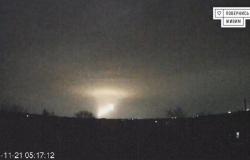The cessation of Russian gas supplies to OMV (Österreichische Mineralölverwaltung), announced on November 16 by Gazprom Export, forced Austria to explore new options to secure its energy needs. In response, Germany is offering a solution via its liquefied natural gas (LNG) terminal in Mukran on the island of Rügen.
The Mukran terminal, operated by Deutsche ReGas, has an annual connection capacity of 13.5 billion cubic meters (Bcm), more than enough to cover Austria’s 7 Bcm of annual consumption. Stephan Knabe, Chairman of the Supervisory Board of Deutsche ReGas, confirmed that this infrastructure, consisting of two floating regasification and storage units (FSRU), has been fully operational since September.
A strategic tool for energy security
The cut in deliveries to OMV resulted from a dispute over arbitrated compensation, which the Austrian company deducted from its payments to Gazprom. This event takes place in a European context where energy security remains a priority. The Mukran terminal not only strengthens the supply of Germany, but also that of neighboring countries, in accordance with the principle of energy solidarity advocated by the European Union.
Thanks to its pipeline network, regasified gas in Mukran can be transported quickly and in large quantities to Austria via Germany and the Czech Republic. This logistical flexibility makes it a strategic solution to compensate for supply interruptions.
The rise of LNG infrastructure in Germany
Since the suspension of Russian gas exports in 2022, Germany has accelerated the development of LNG terminals to diversify its sources of supply. Mukran is the fourth operational terminal in the country and the only one to be managed by a private company. The other three terminals, located in Wilhelmshaven and Brunsbüttel, benefit from state financial support.
Since December 2022, these infrastructures have allowed Germany to import 9.5 million tonnes of LNG, or the equivalent of 13.1 billion cubic meters of gas. The importance of Mukran, as the largest injection point to the national grid, has been reinforced by the growing demand for alternative solutions due to persistent geopolitical tensions.
A favorable regulatory framework
Germany has adopted legislative measures, such as the LNG Infrastructure Acceleration Act, to facilitate the rapid construction of these terminals. This legal framework provides temporary exemptions to certain environmental requirements, thereby reducing implementation times.
These efforts are accompanied by a global energy strategy including strict obligations to fill gas stocks. These initiatives enable Germany not only to ensure its own energy resilience, but also to support European partners like Austria in emergency situations.
The Mukran terminal illustrates how LNG infrastructure can play a key role in European energy stability, while responding to the challenges posed by the end of Russian supplies.





